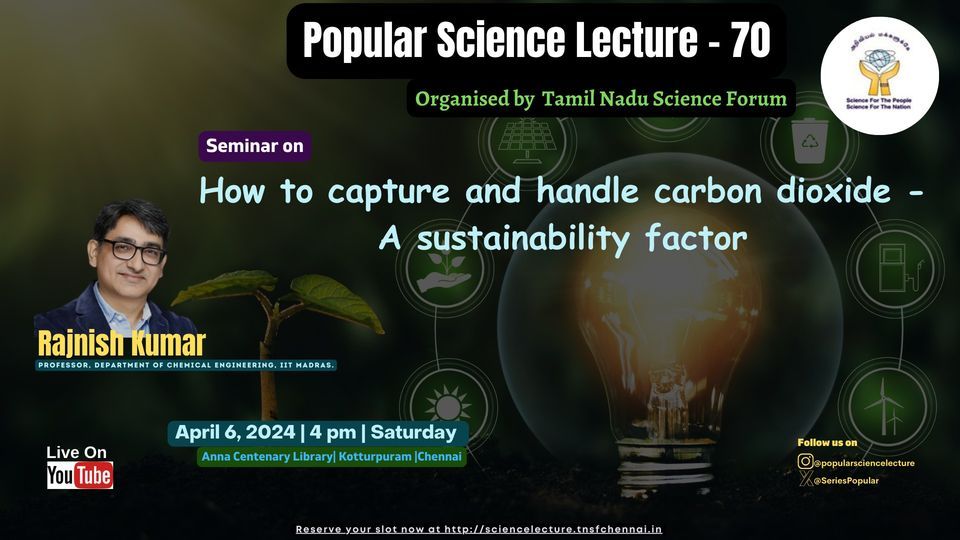
Advertisement
About the Speaker:Professor Rajnish Kumar, FRSC is a professor in the Department Chemical Engineering at IIT Madras. Prior to that he has served as senior scientist at CSIR-NCL, and research associate at National Research Council, Canada. His PhD is from The University of British Columbia, Canada and has research interests in gas hydrates, carbon dioxide capture, process development and scale-up. Work from his research group are well cited, and so far, they have published more than 100 research articles. He was recognized as Highly Cited Researcher in the year 2018. Rajnish is the most recent awardee of Shanti Swarup Bhatnagar Prize for his contribution to engineering science. Rajnish is also a recipient of NASI – Scopus Young Scientist Award in Chemistry for the year 2016. More recently in 2020, Rajnish received Dr. YBG Verma Award for Excellence in Chemical Engineering Teaching at IIT Madras. Rajnish sits in the editorial boards of many journals including, Energy & Fuels, ACS Engineering Au & Scientific Reports.
About the Lecture:
Global CO2 emission has touched ~39 billion tons of carbon dioxide per year, and despite all the talk about net zero CO2 emission, the rate of CO2 emission is expected to stay at the current level for few more years. While role of solar, wind, hydro/waves, hydrogen etc. (perhaps nuclear as well) is acknowledged, current energy need, and proposed GDP growth of developing countries could not be achieved without ensuring implementation of CCUS. CCUS is essentially a three-step process, i) Capturing or separating the CO2 from its associated gases, ii) Transporting the captured, relatively purer CO2 (from step-i) to the utilization site where part of the CO2 could be processed for its utilization, and iii) Majority of the CO2 which could not be converted (in step-ii) has to be transported and sequestered for geological timescale. Thus, amount of CO2 utilized or sequestrated is directly proportional to the amount of CO2 captured. CO2 capture technology has to become robust, and sustainable with time, this presentation would briefly explain the challenges in adaptation of this technology at larger scale.
Advertisement
Event Venue & Nearby Stays
Anna Centenary Library, Chennai, India
Tickets
